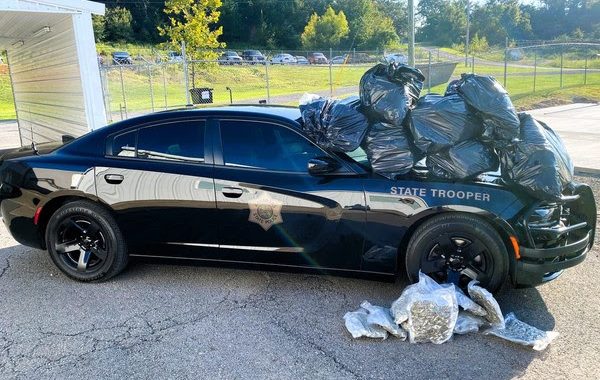As States Legalize Marijuana, Law Enforcement is Struggling to Address Drugged Driving

As states around the country legalize marijuana, law enforcement agencies are wrestling with drugged driving.
A recent story in The Wall Street Journal highlights how the growing use of marijuana among drivers is raising concerns about road safety.
New data suggests marijuana legalization may contribute to over 1,400 additional traffic fatalities annually in the U.S.
Many drivers remain unaware of the risks of driving while high — with only 70% recognizing the danger of driving after using marijuana, compared to 94% for alcohol.
Law enforcement agencies are grappling with the challenge of detecting marijuana impairment. Current testing methods like saliva swabs can indicate recent use but not impairment levels. Unlike alcohol, where blood concentration correlates with impairment, THC, the psychoactive component in cannabis, behaves differently in the body — making it difficult for law enforcement to determine which drivers should not be on the road.
All of this comes as Arkansans wrestle with whether or not to expand marijuana in the state.
Right now the group Arkansans for Patient Access is working to pass a marijuana amendment in Arkansas.
Under this measure, marijuana users would no longer need to show they suffer from a specific medical condition listed in state law — making it easier to use marijuana recreationally.
The amendment would give free marijuana cards to immigrants and out-of-state residents who come to Arkansas to use marijuana.
The amendment would guarantee marijuana growers and sellers a monopoly over the state’s marijuana industry.
The measure also fails to limit the amount of THC in marijuana products, and it repeals restrictions designed to protect children from marijuana advertising.
All of this would lead to more marijuana in Arkansas. Family Council Action Committee has materials available regarding the marijuana amendment:
You can learn more at FamilyCouncilActionCommittee.com.
Drugged driving is a serious public safety problem, and it underscores what we have said for years: Marijuana may be many things, but “harmless” simply is not one of them.
Articles appearing on this website are written with the aid of Family Council’s researchers and writers.
Arkansas State Police Arrest CA Man Transporting More Than 100 Pounds Of Illegal Marijuana On I-40

Authorities in Arkansas continue to confiscate illegal marijuana grown in other states.
On Thursday, the Arkansas State Police issued a statement announcing troopers arrested a California man transporting 105 pounds of illegal, high-grade marijuana on I-40. Troopers discovered multiple large trash bags containing vacuum-sealed bundles of illegal marijuana in the trunk of the man’s car.
We have written time and again about how marijuana’s legalization in other states has actually emboldened drug cartels and organized crime.
Since January, authorities in California have confiscated more than $120 million worth of illegal marijuana — including nearly 123,000 illegal plants.
Some of these illegal marijuana operations are tied to labor trafficking and violent crime, and some may actually have connections to foreign interests like the Chinese Communist Party.
A CBS News segment last year highlighted how Chinese investment is driving illegal marijuana production across the U.S., and CBN reported last October that Chinese investors with “suitcases full of cash” are buying U.S. farmland to grow black market marijuana.
Earlier this year U.S. Rep. Dan Newhouse, R-Washington, appeared on Fox News Business to discuss congressional concerns over illegal marijuana farms and about fentanyl precursors in the U.S. — both with alleged ties to China.
Right now the group Arkansans for Patient Access is working to pass an amendment drastically expanding marijuana in Arkansas.
Under this measure, marijuana users would no longer need to show they suffer from a specific medical condition listed in state law — making it easier to use marijuana recreationally.
The amendment would give free marijuana cards to immigrants and out-of-state residents who come to Arkansas to use marijuana.
The amendment would guarantee marijuana growers and sellers a monopoly over the state’s marijuana industry.
The measure also fails to limit the amount of THC in marijuana products, and it repeals restrictions designed to protect children from marijuana advertising.
All of this would lead to more marijuana in Arkansas. Family Council Action Committee has materials available for volunteers and churches regarding the marijuana amendment:
You can learn more at FamilyCouncilActionCommittee.com.
Articles appearing on this website are written with the aid of Family Council’s researchers and writers.



